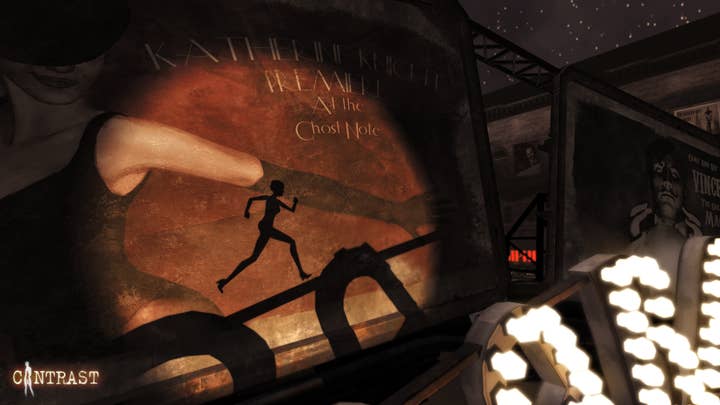Indies and AAA pubs to partner more - Contrast dev
Compulsion's Guillaume Provost says challenges could push AAA and indies together, pubs wary of appealing to women
In the past, the relationships between big time publishers and independent developers have not always been mutually beneficial. However, recent trends are giving the two camps more reason to work together than ever before, according to Compulsion Games' Guillaume Provost. Speaking with GamesIndustry International, the creative director behind the upcoming Contrast said a AAA space where selling 3.4 million copies can still be a disappointment and an increasingly crowded market for indies will push the two camps into greater collaboration.
"We're at a crossroads in the industry right now," Provost said, "We've had golden years in independent development starting with Braid and Limbo where we had a number of really successful independent titles," Provost said. "But as the space has been popularizing, what's happened is the competition is growing fiercer. It's progressively becoming a harder space to break out in, and I think that's exactly where there might be an eventual meeting of the minds between publishers and indies. As the market starts saturating with offerings, it's going to be important for the titles that are breaking out to get publisher attention and support for it."
As an example, Provost pointed to Journey. Taking nothing away from the job ThatGameCompany did with Journey, Provost said it would have been difficult for the independent developer's latest game to be as commercially viable if Sony's marketing machine hadn't been behind it.
"As the market starts saturating with offerings, it's going to be important for the titles that are breaking out to get publisher attention and support for it."
Guillaume Provost
As for the AAA market, Provost said he believes there will always be a handful of companies that make money in that space. But they are facing a customer base that buys fewer games each year, and spends more time with--and expects more from--the titles they do pick up. The record budgets of the AAA market are also providing problems for publishers, squeezing out any tolerance for the sort of risk that could produce a groundbreaking title.
"If you're going to be spending that much money on a title, you need to pick a genre and be the best in it, or lose. That's basically the formula. If I were a big publisher, I don't think I'd spend $80 million on a risky title. I would spend $80 million on 80 risky titles. I'd make a lot of smaller bets on the creative side."
Of course, that's not the approach that AAA publishers have been taking. When Provost first pitched Contrast to a host of major publishers two years ago, he found a lot of resistance to the game, which casts players as a mysterious woman named Dawn with some tricks involving light and shadow, and focuses on her relationship with an eight-year old girl named Didi. Provost said Compulsion's focus testing found men liked the story involving gangsters and the general noir aesthetic of the game, while women responded well to the female leads, lack of combat, and elements that evoked vintage cabarets. Unfortunately, publishers did not respond as well, simply because it didn't look like anything that had been successful previously.

"I was literally told by high-level executives that were prepping us before going to pitch meetings with the CEO of a publisher that we should not talk about the fact that our game appealed to women, because they were afraid our game would be perceived as a 'girly game'," Provost said.
While Provost stressed that some publishers were more open than others, he said the general feedback was that they simply hadn't seen enough evidence that games appealing to women could succeed in the PC and console space.
And now that the game is nearing completion and the execution risk is essentially gone, Provost said he has received more interest from publishers, but none have been offering especially good deals. As an example, Provost said deals that give the developer a cash advance on royalties to finish the game or bring it to a new system can be tempting, but often do more harm in the long run.
"A little bit more money and a little bit more time at the end of a project is always irresistible, from a developer standpoint," Provost said. "'Maybe I can make an 88 game instead of an 82 game on Metacritic! I might have a shot at winning awards!' It's dangling a carrot and playing with the passion of a developer. The problem is, it builds a revolving door. You take a bad deal in order to make a great game, and you're potentially robbing yourself of having enough money on the backend to keep doing great games. Because that backend money is what's going to help us make our next game."
This is one in a series of GamesIndustry International interviews with independent developers on the changing role of indies in the industry landscape.

